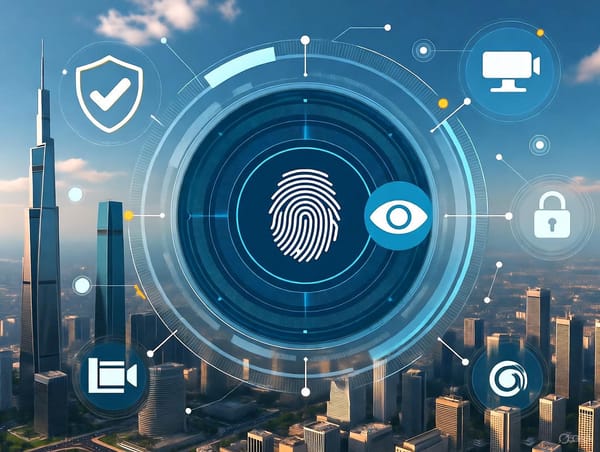Guarding Your Digital Life
In a world where data tracking fuels censorship, guarding your digital life with encryption and anonymity isn’t just self-defense—it’s a quiet rebellion against overreach.

In an era where our lives are increasingly online, the line between personal freedom and external control is fading. Every click, search, or post leaves a digital footprint—one that can be tracked, analyzed, or silenced. Privacy invasion and censorship are deeply intertwined: exposed data makes it easier for governments, corporations, or bad actors to suppress your voice. Protecting your digital life isn’t just about safeguarding personal information; it’s about preserving your right to speak, think, and exist freely in a connected world. This guide explores practical, accessible ways to shield yourself online, from mastering encryption to outsmarting data trackers.
Why Privacy Is Your Defense Against Censorship
Privacy isn’t a luxury—it’s the foundation of autonomy. When your online behavior is exposed, it’s not just advertisers who profit. Governments and platforms can use your data to profile you, predict your actions, or silence you. A leaked email, a tracked search, or a flagged post can become tools for suppression. For example, in 2023, a whistleblower’s exposed messages led to their identification and censorship in a high-profile surveillance case. By securing your privacy, you build a shield against those who’d rather you stay silent.
The stakes are clear. Platforms increasingly tighten content rules, governments expand surveillance (e.g., laws mandating data retention in some countries), and data breaches expose millions annually. Protecting your digital life is a proactive stand against a world where control often hides behind “safety.”
Encryption
Encryption scrambles your data—messages, files, or emails—into a code only the intended recipient can unlock. Without it, your communications are like postcards, readable by anyone who intercepts them. With encryption, they’re sealed envelopes, safe from prying eyes.
How to Start:
- Messaging: Use apps like Signal, which offer end-to-end encryption by default, ensuring only you and the recipient can read your chats. Signal is open-source and free, with no data stored on servers.
- Email: Switch to ProtonMail or Tuta Mail, which encrypt emails and store them securely. ProtonMail’s free tier is a great starting point.
- File Storage: Use tools like VeraCrypt to encrypt sensitive files on your device or cloud storage like Tresorit for secure backups.
Encryption isn’t bulletproof—weak passwords or compromised devices can undermine it—but it raises the bar, deterring casual snoopers and automated systems. For censored voices, encryption buys time to speak freely.
Outsmarting Data Tracking
Every website you visit leaves a trail. Cookies, IP logs, and device fingerprints map your habits—what you read, who you follow, what you buy. This data fuels algorithms that can flag “undesirable” behavior, like controversial opinions or visits to restricted sites. In extreme cases, such as in authoritarian regimes, this tracking has led to arrests for online activity.
Steps to Fight Back:
- Privacy-Focused Browsers: Use Brave, which blocks trackers by default. Brave also offers a built-in Tor mode for anonymous browsing.
- VPNs: A Virtual Private Network (VPN) like ProtonVPN or Mullvad masks your IP address, hiding your location and identity. Look for no-log VPNs to ensure your data isn’t stored. Free options like ProtonVPN’s basic tier work for light use.
- Clear Cookies Regularly: Most browsers let you clear cookies in settings or use extensions like uBlock Origin to block trackers.
These steps don’t make you invisible, but they obscure your trail, making it harder for censors to target you.
Securing Your Devices
Your phone and laptop hold a treasure trove of data—photos, messages, location history—making them prime targets for monitoring or censorship. A breached device can expose your network, endangering friends or allies.
Key Actions:
- Strong Passcodes: Use unique, complex passcodes (at least 12 characters, mixing letters, numbers, and symbols). Avoid patterns like “1234” or birthdays.
- Full-Disk Encryption: Enable this on your devices—it’s built into modern iPhones (automatic with a passcode) and Androids (under Security settings). For laptops, use BitLocker (Windows) or FileVault (Mac).
- Privacy-Focused Operating Systems: Consider Pop!_OS or Linux Mint for desktops, or GrapheneOS for Android devices, to minimize data collection.
- Software Updates: Keep your devices updated to patch vulnerabilities. Avoid public Wi-Fi without a VPN.
A secure device is harder to crack, keeping your voice safe from overreach.
Embracing Anonymity
When censorship looms, anonymity is a lifeline. Platforms like X are battlegrounds for free expression, but they’re also monitored. A single post tied to your identity can lead to bans or worse.
Tools for Anonymity:
- Tor Browser: Tor routes your connection through multiple servers, hiding your identity. It’s slower but ideal for sensitive tasks. Use it with caution—avoid logging into personal accounts.
- Throwaway Accounts: Create pseudonymous accounts with temporary emails (e.g., ProtonPass, Temp-Mail) for platforms where you need to speak freely.
- Avoid Linking Identities: Don’t use real names or personal details in anonymous profiles.
Anonymity isn’t about hiding; it’s about surviving in a world where free speech can have consequences.
Overcoming Barriers to Privacy
Adopting privacy tools can feel daunting. Some, like VPNs or encrypted email, may have costs (though free tiers exist), and learning new tools takes time. If you’re in a region with restricted internet access, tools like Tor may be blocked, requiring workarounds like VPNs or bridges. Start small—switch one app or tweak one setting—and explore free resources like PrivacyTools.io or the Electronic Frontier Foundation (EFF) for guides tailored to your needs.
Privacy as Resistance
Every encrypted message, blocked tracker, or anonymous post chips away at systems that thrive on control. Censorship relies on predictability; privacy creates unpredictability. By making yourself harder to monitor, you protect your voice and keep the door open for others.
Next Steps:
- Today: Download Signal and a privacy-focused browser like Brave.
- This Week: Set up a VPN and enable device encryption.
- Ongoing: Explore resources like the EFF’s Surveillance Self-Defense guide or PrivacyTools.io for deeper learning.
Your Digital Life, Your Rules
Privacy and censorship are two sides of the same coin—control what’s seen, and you control what’s said. By embracing encryption, dodging trackers, securing devices, and exploring anonymity, you’re not just guarding your digital life; you’re asserting your right to exist unfiltered. The threats evolve daily, but the tools are in your hands. Start small, stay persistent, and keep the conversation alive.





